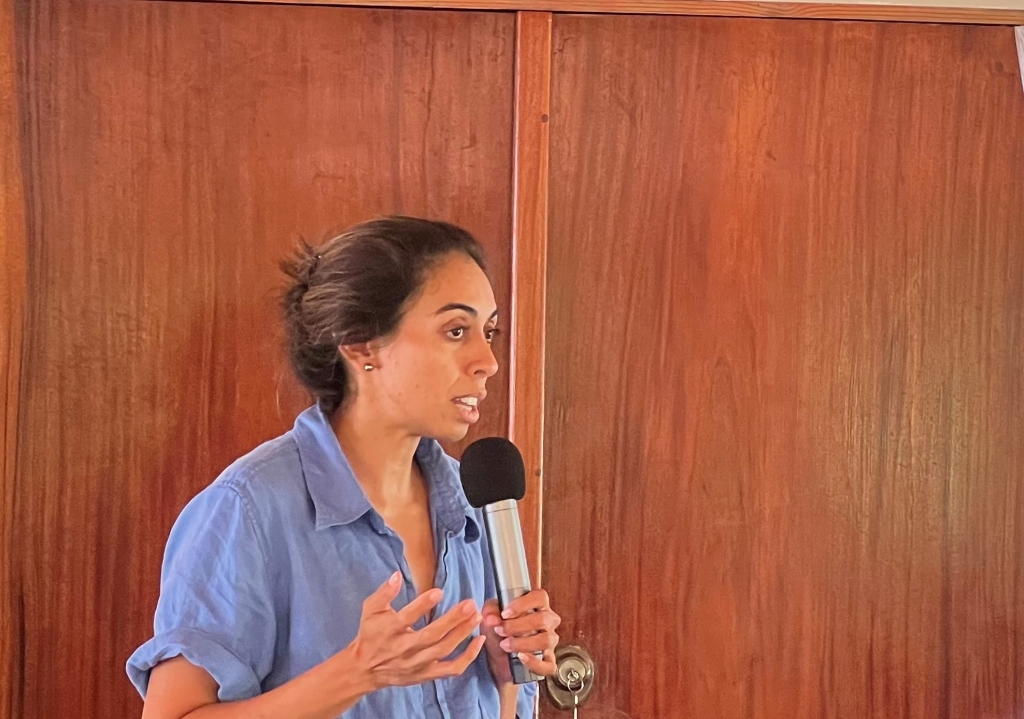Palau is reiterating its call for the new plastics treaty to focus on the full lifecycle of plastics including controlling production rather than relying solely on recycling to combat the plastic pollution crisis.
The Republic of Palau located in the northwestern Pacific, renowned for its pristine and unique marine environment and diverse underwater seascape is at the frontline of the profound impacts of the increased levels of plastic waste infiltrating its shores.
The nation’s unique geographical location, nestled within the same region as the top five countries responsible for 55-60 percent of global plastic leakage into the ocean, places Palau at high risk.
“The new plastics treaty under discussion presents a critical opportunity to address the plastic pollution issue from its source. Recycling, while important, is not a panacea for the overwhelming volumes of plastic waste that threaten our oceans and terrestrial ecosystems. Palau’s stance is clear: to solve this crisis, we must look at the full lifecycle of plastics including reducing plastic production, preventing it from entering our shores,” said Permanent Representative of Palau to the UN and Chair of Pacific Small Island Developing States, Ilana Seid.
Last week in Palau, Pacific Islands united to build a One Pacific Voice to amplify our regional concerns and ensure they are reflected in the new global plastic treaty under negotiation. This will go through five International Negotiating Committee (INC) meetings with the third session to take place in Nairobi, Kenya next month.
To prepare for this, the Secretariat of the Pacific Environment Programme (SPREP) with funding support from the Government of Australia convened the Pacific Regional Preparatory Workshop which ended today with the adoption of the Koror Outcome.

Palau has long championed sustainability and environmental protection: the island nation became the world’s first shark sanctuary in 2009, currently has 80 percent of its exclusive economic zone (EZZ) as a marine protected area, and has a groundbreaking ban on sunscreen that’s harmful to coral reefs.
“We’ve been constantly reminded that we cannot recycle our way out of this mess. The new plastics treaty is an opportunity to shift the balance from reactive waste management to proactive prevention. This pollution entering our waters not only endangers the marine life but also compromises the livelihoods of the people who rely on the ocean for both their livelihoods and their sustenance,” Ambassador Seid said.
“It’s clear that plastic has served its time, it’s been a material that has been useful but now that we have recognised it is harmful, we should use this instrument as an opportunity to incentivise more sustainable alternatives,” the Ambassador added.
Since the 1950’s the world has generated nine billion tonnes of plastic, for which only nine percent has been recycled. Over eight million tonnes of plastic enter the ocean each year with 40% of the ocean’s surface covered in plastic debris
If our plastic consumption and behaviour continues, scientists warn that there will be more plastic than fish in the ocean by 2050.
The Pacific Regional Preparatory Workshop for the Third Intergovernmental Negotiating Committee (INC-3) meeting was held in Koror, Palau from 18—20 October 2023.
This story was originally published at SPREP on 21 October 2023, reposted via PACNEWS.




